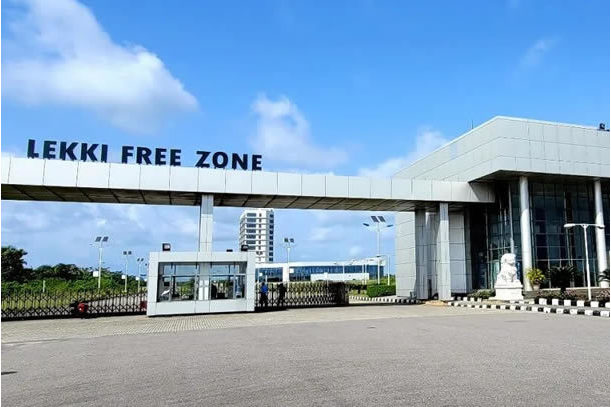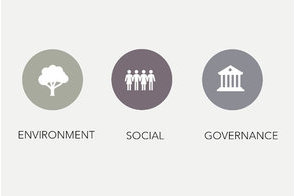Chinese projects in 3 Africa countries not meeting ESG guidelines of China

Summary
The projects were in Egypt, Nigeria, and Ethiopia. The Nigerian project, Lekki Free Zone, exhibited "notable ESG risks" related to community relocation and compensation, but the potential benefits of the LFZ include job creation and infrastructure development.
A new study of five Chinese projects in three Africa countries finds the projects were not meeting the standards of China's recommended ESG (Environmental, Social, and Governance) guidance, signalling significant room for improvement.
The collaborative study by the Boston University Global Development Policy Centre, the Fudan University Green Finance and Development Centre, the South African Institute of International Affairs, and LSE IDEAS had Chinese projects in Egypt, Nigeria, and Ethiopia as case studies.
According to the findings of the report shared with Financial Nigeria, the report uses a consistent ESG framework based on stated Chinese and local ESG requirements and recommendations to analyse the projects in energy and industrial parks sectors, which align with China's ambitions to enhance energy access and support manufacturing in Africa. The report also assessed the case studies’ potential risks to biodiversity and indigenous lands, based on their spatial locations.
Amongst the report’s findings, in Egypt, the Tianjin Economic-Technological Development Area (TEDA)-Suez Special Economic Zone and Sinohydro’s Attaqa Hydroelectric Power Plant showed Chinese firms adhering to the host country's minimum ESG standards, while also taking advantage of regulatory gaps around labour conditions and taxation.
The TEDA-Suez project was found to have the highest risk to biodiversity compared to other projects and average risks for World Bank and Chinese development-financed projects. The TEDA project presented some potential risk to indigenous lands, albeit lower than the average for Chinese development-financed projects.
In Nigeria, the Lekki Free Zone (LFZ) project exhibited notable ESG risks related to community relocation and compensation, but also potential benefits including job creation and infrastructure development. The LFZ showed negligible risk to indigenous lands due to its distance from these areas.
In Ethiopia, institutional weaknesses and inadequate regulatory frameworks posed challenges to ESG implementation in the examined projects: the Eastern Industrial Zone (EIZ) and the Grand Ethiopian Renaissance Dam (GERD) and Renaissance-Addis transmission line. Specific issues included delays in land compensation, poor coordination among public servants, and deficiencies in human resources and government funding.
The EIZ and the Renaissance-Addis Power Transmission Line were found to be partially or entirely located on indigenous lands, leading to higher risk scores.
The report concludes by identifying recommendations for key Chinese, African, and international stakeholders to improve ESG practices for Chinese-financed projects in Africa.
The case studies underscore the critical importance of robust, well-enforced ESG standards and regulatory frameworks, as well as the need for transparency, stakeholder engagement, and institutional capacity building to ensure sustainable and socially responsible project outcomes, according to the statement.
“Much is talked about the role of China in financing and building infrastructure,” said Christoph Nedopil, Associate Professor of Practice in Economics; Director, Green Finance & Development Center, Fanhai International School of Finance (FISF), Fudan University. “But so far little was known about application of environmental, social and governance (ESG) standards when actually implementing the projects.”
He said that in this unique international on-the-ground research with partners in China, USA and across Africa, it was striking to find a general awareness and much need for improvement in actually applying ESG considerations.
“We believe that local partners in host countries, as well as financial institutions, should drive ESG standard application with a clear benefit to lower project risks in the short and longer term," Nedopil concluded.
Related
-
Report highlights the challenges of data, reporting on Scope 3 emissions
The Greenhouse Gas Protocol defines Scope 3 emissions as all value chain emissions resulting from activities and assets not ...
-
Alternative fund managers most influenced by ESG in investment decisions
The study from Ocorian, which manages over 15,000 structures on behalf of 6,000+ clients globally, shows the UK is ranked ...
-
DuPont publishes 2022 sustainability report
The report details progress on the company’s sustainability strategy organized under three pillars: Innovate, Protect ...










